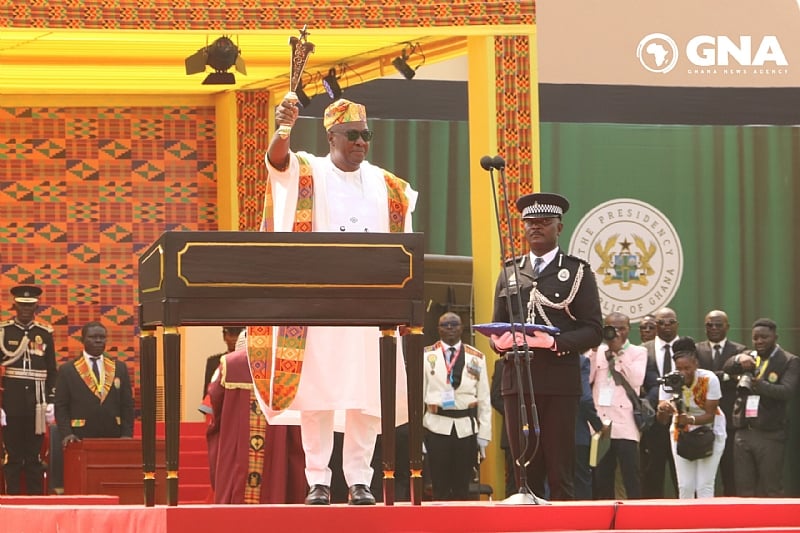The residents of Sekondi-Takoradi Metropolis in Ghana’s Western Region have expressed their anticipation for President John Dramani Mahama to deliver on his campaign promises, particularly his pledge to implement impactful economic policies within the initial 120 days of his presidency. They emphasized the economic hardships they face and their hope that President Mahama’s administration will bring tangible improvements to their lives. Local traders and business owners, like Paa Kwesi Afful and Frank Owass, voiced their trust in President Mahama’s ability to transform the economy and alleviate the current financial strain. They reiterated their belief in his commitment to improving the overall well-being of Ghanaians. This sentiment reflects the widespread expectation for positive change following President Mahama’s election.
President Mahama’s 120-day plan encompasses a range of critical areas aimed at stabilizing the nation and addressing pressing issues. Central to this plan is the commitment to combatting corruption, which includes restructuring the Office of the Special Prosecutor. This reorganization involves providing the office with adequate funding and resources to effectively investigate and prosecute corruption cases. Furthermore, President Mahama has pledged to reopen investigations into past criminal activities, notably those related to the 2020 election killings, ensuring accountability and justice. These initiatives are crucial for restoring public trust and reinforcing the rule of law.
The President’s economic recovery strategy focuses on stabilizing the Ghanaian cedi and curbing inflation within the first 120 days, laying the foundation for a broader economic turnaround. This approach involves the establishment of a National Economic Recovery Task Force, a dedicated body tasked with developing and implementing strategies to address the economic challenges facing the nation. Coupled with this is the plan to convene a national economic dialogue, a platform for stakeholders to openly discuss the current economic realities and collaboratively devise solutions. These actions demonstrate a commitment to transparency and inclusive decision-making in tackling the nation’s economic woes.
Beyond economic measures, President Mahama has also committed to expanding access to education and government services. His “No-Academic-Fee” policy aims to eliminate tuition fees for first-year students in public tertiary institutions, including universities, colleges of education, and nursing training schools. This initiative seeks to make higher education more accessible and affordable for a wider segment of the population, fostering human capital development. Furthermore, the government intends to implement a 24-hour service delivery system, allowing citizens to access government services at their convenience. This enhanced accessibility aims to improve efficiency and responsiveness within the public sector.
The residents of Sekondi-Takoradi Metropolis, echoing the sentiments of many across the nation, await the implementation of these promised initiatives. Their hopes are pinned on President Mahama’s commitment to delivering tangible results within the first 120 days of his administration. The success of these endeavors will be a key determinant of the President’s effectiveness in addressing the nation’s challenges and fulfilling the expectations of the citizenry. The focus on economic recovery, anti-corruption efforts, and improved access to essential services represents a comprehensive approach to national development.
The next four months will be a crucial period for President Mahama’s administration as the nation watches closely for progress on these commitments. The implementation of these policies will not only impact the immediate economic and social landscape but also shape public perception and trust in the government’s ability to deliver on its promises. The expectation is high, and the residents of Sekondi-Takoradi, along with the rest of Ghana, anticipate a marked improvement in their lives and the nation’s overall well-being. The emphasis on transparency, inclusivity, and decisive action will be key to achieving these ambitious goals and securing a brighter future for Ghana.














